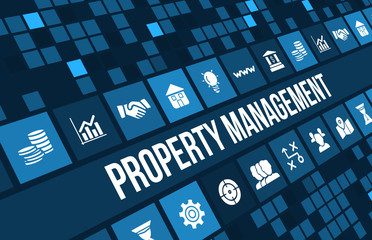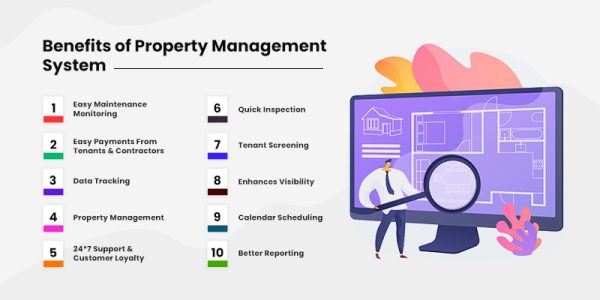
Understanding Tenant Rights and Responsibilities: A Guide for Landlords and Tenants:
Understanding Tenant Rights and Responsibilities: A Guide for Landlords and Tenants” serves as a comprehensive resource aimed at providing clarity and guidance in navigating the complex relationship between landlords and tenants. In today’s rental market, both parties need to be well-informed about their respective rights and responsibilities to foster a harmonious and mutually beneficial living arrangement. This guide aims to empower both landlords and tenants with knowledge about their legal obligations, best practices, and avenues for resolving disputes effectively.
What are the main tenant rights and their variations by state
Key tenant rights under landlord-tenant laws include the right to a habitable living space, privacy, protection from discrimination, and proper notice before eviction. These rights can vary significantly from state to state due to differences in laws and regulations governing landlord-tenant relationships. For example, some states may have stricter laws regarding eviction procedures, security deposit limits, or rent control measures, while others may offer more lenient provisions. Additionally, state laws may vary in terms of the amount of notice required for entry by the landlord, the handling of security deposits, and the rights of tenants in foreclosure situations. Therefore, tenants should familiarize themselves with the specific laws in their state to understand their rights and responsibilities fully. Furthermore, tenants should be aware of their rights concerning repairs and maintenance, lease terms, and rent increases. Some states have specific laws regarding the landlord’s responsibility to maintain the rental property in a safe and habitable condition, while others may allow for certain lease terms that could potentially infringe on tenant rights. It’s crucial for tenants to carefully review their lease agreements before signing and to seek clarification or legal advice if they have concerns about any clauses. If a tenant believes their rights are being violated, they may have recourse through avenues such as filing a complaint with a local housing authority, seeking legal assistance, or withholding rent under state laws.
Under what circumstances can a landlord enter a tenant’s rental unit without permission
Landlords typically have the right to enter a tenant’s rental unit without permission in certain specific circumstances as outlined by landlord-tenant laws. These circumstances often include emergencies such as a fire, flood, or gas leak where immediate access is necessary to protect life or property. Additionally, landlords may enter the rental unit without permission to perform repairs or maintenance that are urgently needed to maintain the habitability of the property. However, even in these situations, landlords are usually required to provide reasonable notice to the tenant whenever possible, unless it’s an emergency that requires immediate action to prevent harm or damage. Both landlords and tenants need to understand the specific laws governing entry into rental units in their jurisdiction. While landlords have certain rights to access the property for valid reasons, tenants also have rights to privacy and quiet enjoyment of their home. Therefore, landlords should strive to communicate effectively with tenants and provide notice whenever possible, while tenants should be aware of their rights and assert them if they believe their landlord is entering the rental unit without proper justification or notice.
Read more about Understanding and Managing Tenant Complaints
Landlords must maintain the rental property, and tenants should report issues promptly
Landlords have a legal obligation to maintain the rental property in a habitable condition, which includes ensuring that essential services such as heating, plumbing, and electricity are in working order. Additionally, landlords are responsible for addressing structural issues, pest infestations, and other maintenance needs that may arise during the tenancy. Failure to fulfill these responsibilities may result in legal action by tenants or fines imposed by local housing authorities. On the other hand, tenants play a crucial role in the upkeep of the rental property by promptly reporting any issues or maintenance concerns to the landlord or property management. By notifying the landlord of problems such as leaks, malfunctioning appliances, or safety hazards, tenants help ensure that necessary repairs are completed on time, maintaining the habitability and safety of their living space. Tenants should document their communications with the landlord regarding maintenance requests and follow up if repairs are not addressed promptly.
What is the eviction process, and what rights do tenants have
The eviction process typically begins with the landlord serving the tenant with a notice, which can vary in length and type depending on the reason for eviction and local laws. Common reasons for eviction include nonpayment of rent, violation of lease terms, or lease expiration. If the tenant fails to remedy the issue or vacate the premises within the specified timeframe, the landlord may file a lawsuit in court to obtain an eviction order. If granted, this order allows law enforcement to remove the tenant from the property. Tenants facing eviction have certain rights, including the right to receive proper notice, the right to contest the eviction in court, and the right to remain in the property until a court order is issued. Additionally, tenants may have the right to seek legal assistance or negotiate with the landlord to resolve the issue outside of court. It’s important for tenants to understand their rights and legal options when facing eviction and to seek guidance from local tenant advocacy organizations or legal aid if needed.
What lease terms should tenants check and address concerns
Before signing a lease agreement, tenants should carefully review key terms such as the duration of the lease, rental amount and payment schedule, security deposit requirements, maintenance responsibilities, and any restrictions or rules outlined in the lease. Additionally, tenants should pay attention to clauses regarding utilities, parking, pet policies, subletting, and the procedure for lease termination or renewal. By thoroughly understanding these terms, tenants can avoid misunderstandings or disputes with the landlord during the tenancy.If tenants have concerns about any clauses in the lease agreement, they should address them with the landlord or property manager before signing. It’s important to seek clarification or negotiate changes to the lease terms if necessary. Tenants may also consider consulting with a legal advisor or tenant advocacy organization for assistance in understanding their rights and advocating for fair lease terms. Ultimately, tenants should not feel pressured to sign a lease agreement until they are comfortable with all its provisions and understand the implications of each term.
Read more about Navigating Hyderabad’s Rental Laws and Regulations
Conclusion:
In conclusion, “Understanding Tenant Rights and Responsibilities: A Guide for Landlords and Tenants” serves as a valuable tool for fostering a better understanding between landlords and tenants. By adhering to the principles outlined in this guide, both parties can ensure a smoother and more harmonious rental experience. From respecting each other’s rights to fulfilling legal obligations, effective communication, and seeking recourse through proper channels in case of disputes, this guide emphasizes the importance of mutual respect, cooperation, and adherence to the law.
Related Posts
The Best Residential Plots for Sale in Amaravati
The Best Residential Plots for Sale in Amaravati: A Comprehensive Guide Amaravati, the vibrant capital…
Top Locations for CRDA Approved Plots in Amaravathi
Top Locations for CRDA Approved Plots in Amaravathi Choosing the right location for investing in…
Why Invest in CRDA Approved Plots in Amaravathi
Why Invest in CRDA Approved Plots in Amaravathi Investing in CRDA (Capital Region Development Authority)…
How to Create a Tenant-Friendly Property: Tips for Landlords
Title: Why Invest in CRDA Approved Plots in Amaravathi Investing in CRDA (Capital Region Development…
The Role of Technology in Modern Property Management
Streamlining Property Management: The Impact of Technology in Modern Real Estate In the ever-evolving landscape…
Common Challenges in Tenant Management and How to Overcome Them
Common Challenges in Tenant Management and How to Overcome Them Tenant management is a crucial…
Essential Qualities to Look for in a Property Management Company
Essential Qualities to Look for in a Property Management Company Choosing the right property management…
Tips for Building a Strong Community in Multi-Family Rental Properties
10 Proven Strategies for Cultivating a Thriving Community in Multi-Family Rental Properties In the realm…
Best Practices for Conducting Background Checks on Potential Tenants
Ensuring Reliable Tenants: Best Practices for Background Checks In the realm of property management, securing…
Integrating Advanced Tech in Property Management
Integrating Advanced Technology into Property Management Services for Enhanced Efficiency In an era defined by…
Cost-Effective Solutions for Managing Maintenance in Property Management Services
Cost-Effective Solutions for Managing Maintenance in Property Management Services. In the realm of property management…
The Role of Property Management in Community Living
The Role of Property Management in Community Living Property management plays a pivotal role in…
Effective Tenant Retention Strategies
Effective Tenant Retention Strategies Effective tenant retention strategies are essential for landlords and property…
Benefits of Professional Property Management for Overseas Investors.
Benefits of Professional Property Management for Overseas Investors. Professional property management offers invaluable benefits for overseas…
The Future of Real Estate: Trends in Property Management
The Future of Real Estate: Trends in Property Management The future of real estate holds…

















